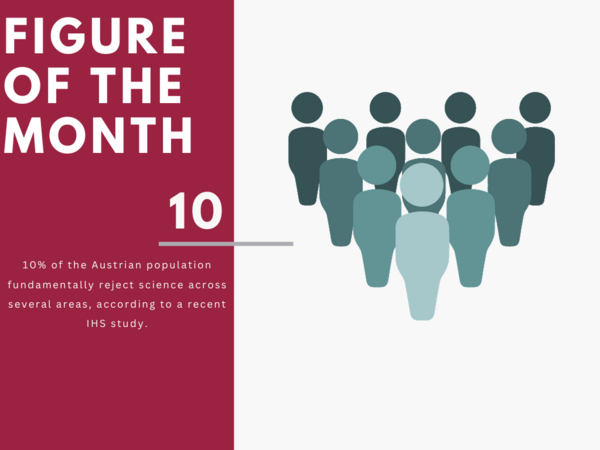Measuring scientific skepticism
Authors: Katrin Auel and Johannes Starkbaum

How can scientific skepticism actually be measured? This was one of the questions of a recently published IHS study. Based on a literature search, we define scientific scepticism as a systematic and unfounded rejection of science. Our study shows that a large part of the Austrian population has a positive attitude towards science. A core group of about ten percent, on the other hand, fundamentally rejects science across several areas. Where does this figure come from? We analysed the agreement with four science-sceptical to conspiracy-theoretical statements, which were collected in the course of the Eurobarometer 516 survey of 2021. One percent of the respondents agreed with all four statements, another nine percent agreed with three of the four statements. According to this definition, systematic scepticism about science is only found in a small segment of the population, although various forms of criticism of and disinterest in science are more widespread.
In order to gain a more comprehensive picture of attitudes towards science in Austria, the study evaluated data from four other surveys in addition to a literature review and historical analysis. In addition, experts were interviewed and focus groups were conducted with people from the population. As a result, scepticism and mistrust are evident in all population groups and not as an exclusive phenomenon of individual groups. Moreover, most of the criticism does not concern science itself, but its interactions with other areas of society such as politics.
The entire study is available for download on the IHS website
